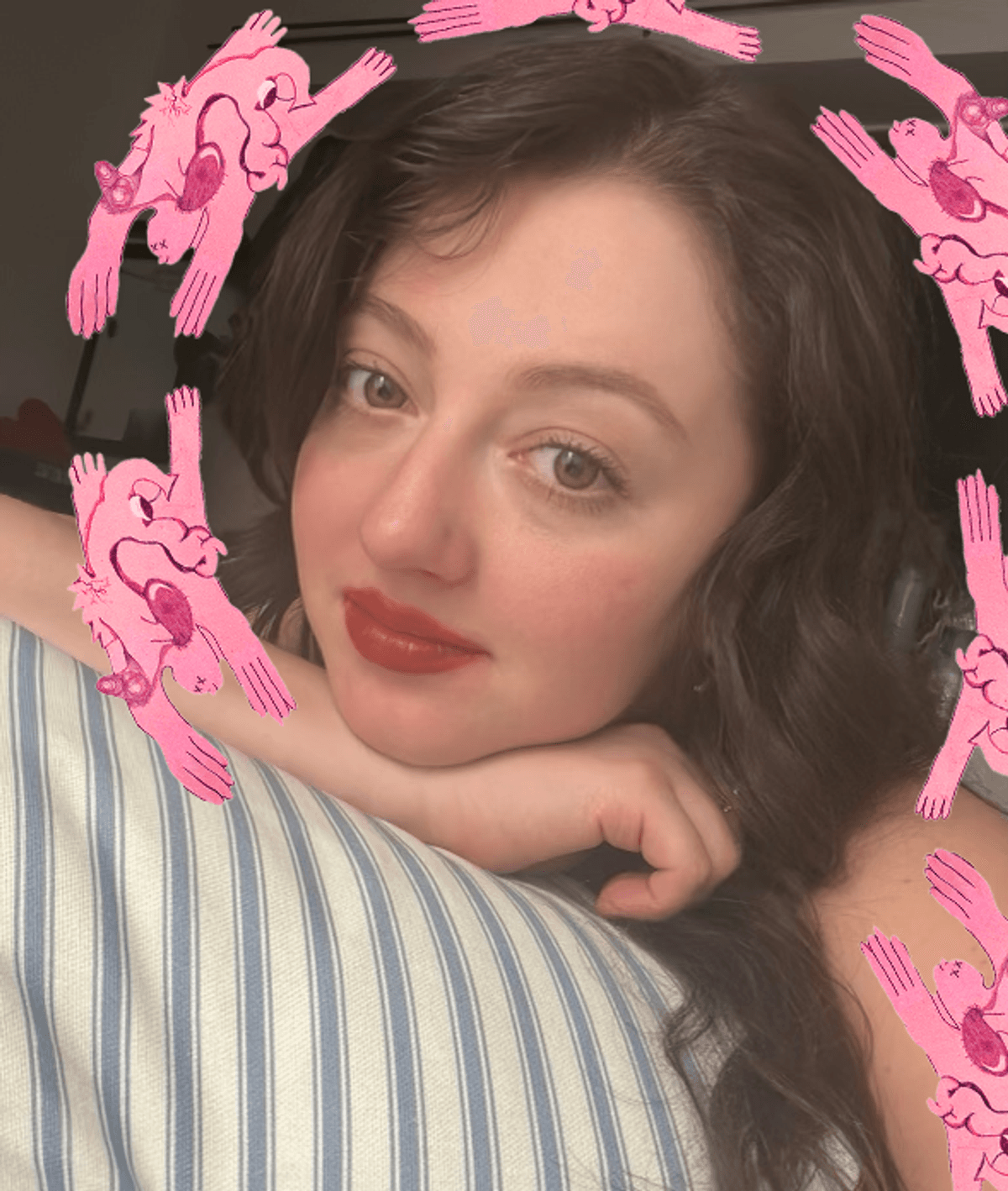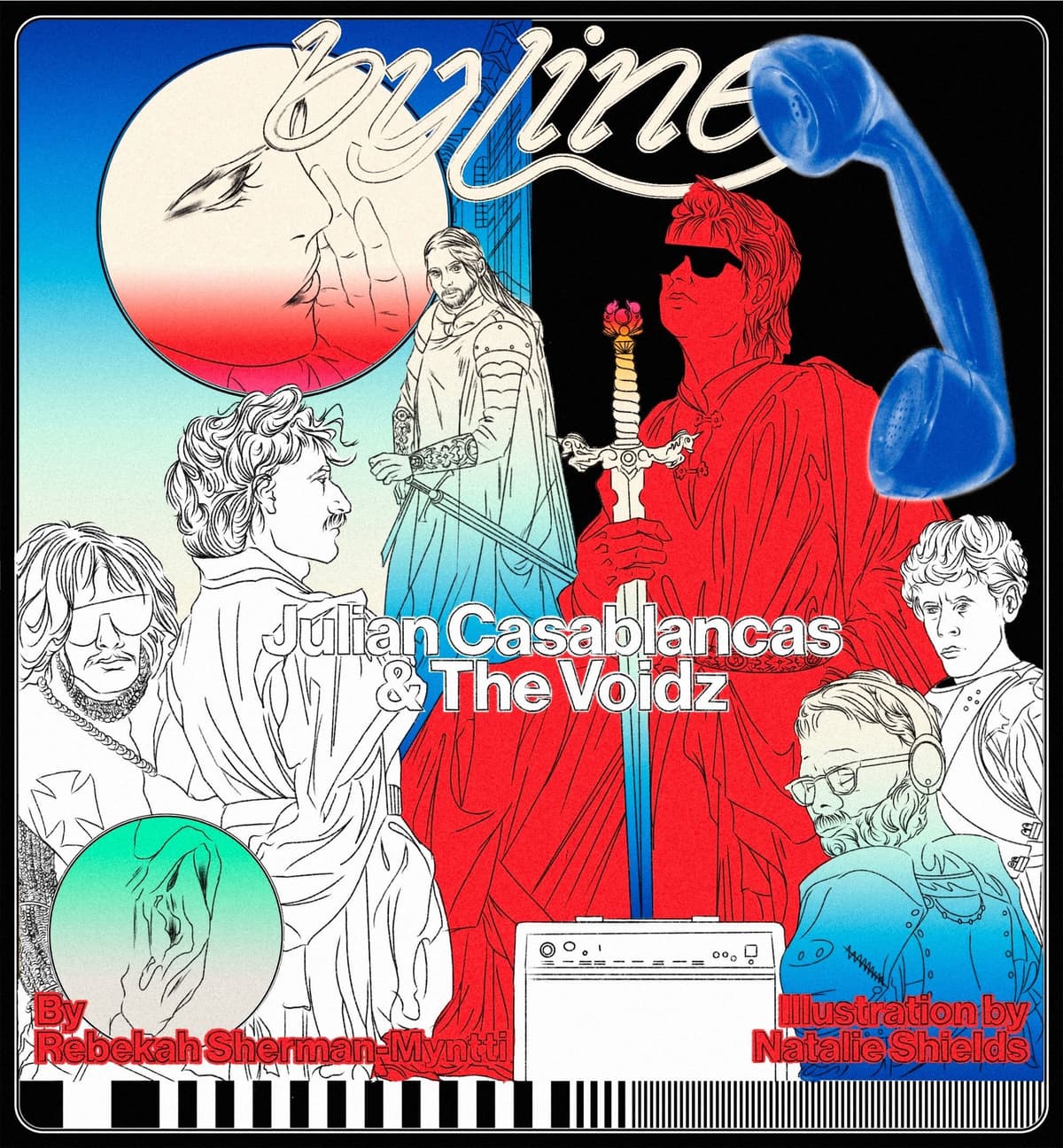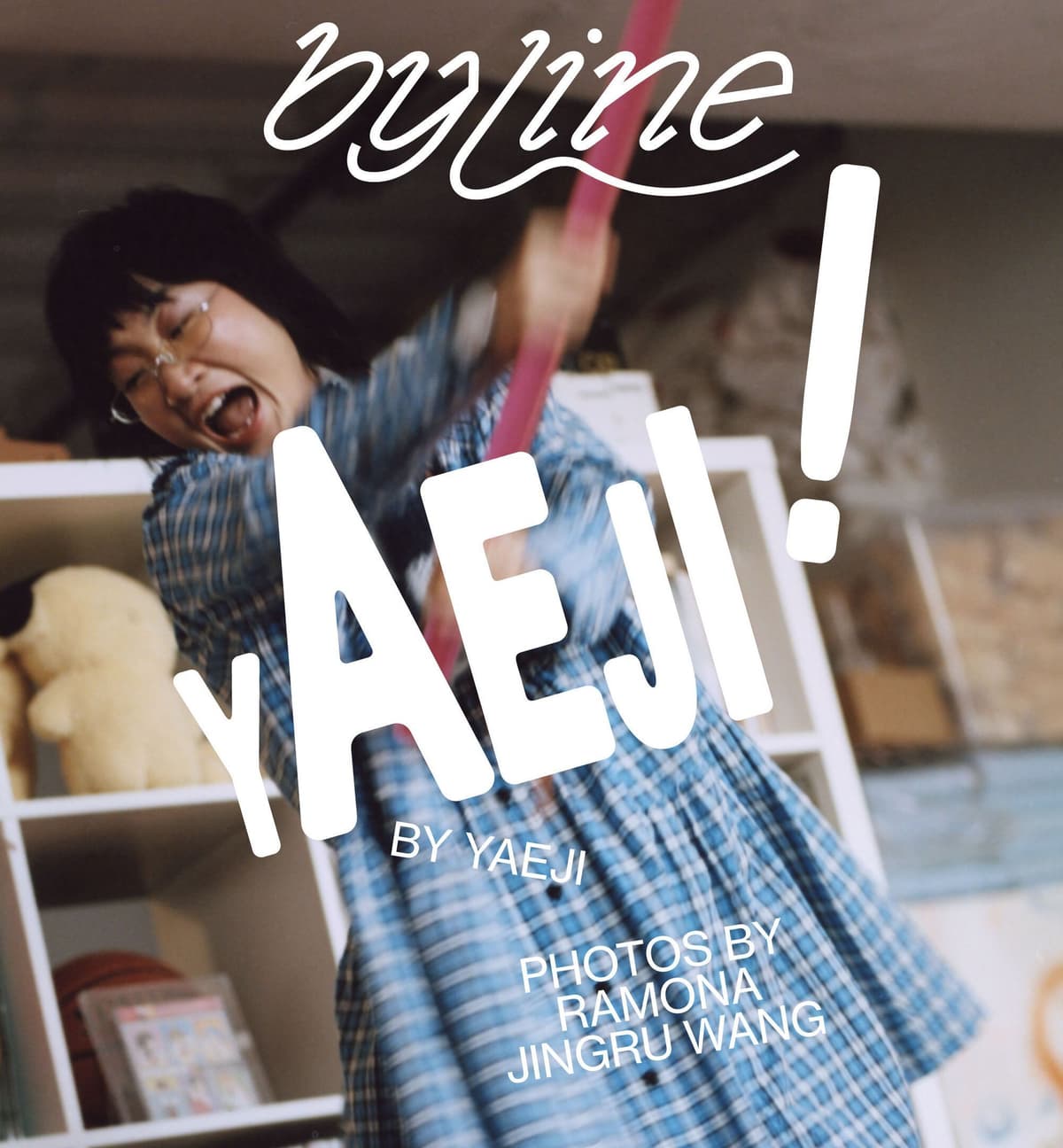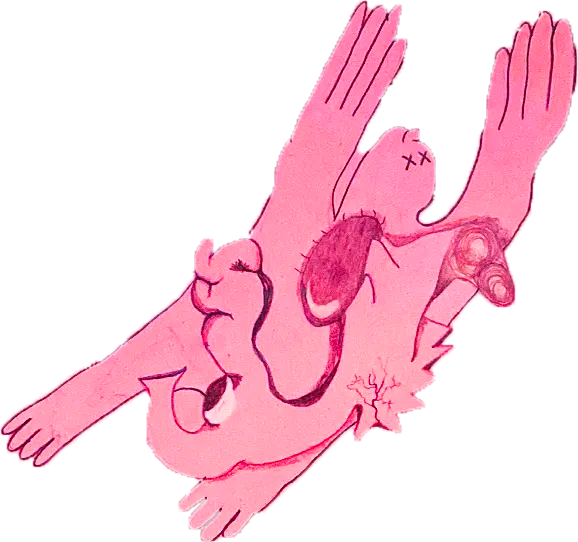SARTORIAL SAGAS
Gutes Guterman

I thrive on pressure and pushing myself. Sometimes I bite off more than I can chew…but being a vessel for story-telling made me fall in love with the world.
TESS POLLOK: There’s so much to talk about here. You’re a brand strategist and journalist, as well as the co-founder and editor of Byline, a new publication dedicated to “sartorial sagas, deep cuts, and deep dives” into the online world. You’re also the former co-editor of The Drunken Canal; you’re basically a one-woman media blitzkrieg. To start–Byline just released its sixth issue, “Music to Our Ears.” It’s about music and the general vibe of good sounds and joyful noise. What is Byline? How would you describe it to someone who’d never heard of it before?
GUTES GUTERMAN: Byline is a place to have fun. At its core, that’s what it is. We’re an online publication directing for creative expression and we collect amazing new voices, people, and stories. We try to champion the human–we try to champion individuality and having a unique voice. I think with bigger publications, there’s always this looming sense that they’re serving some kind of corporate entity, but with Byline, the emphasis is really on our writers and the stories they have to share. That’s why we called it Byline, because it’s literally about our writers, their lives, and their bylines. It’s also basically just a vessel for having fun with story-telling and your friends on the internet. For our first issue–which was called “World Wide Wonder,” and it was about life online–we had Annie [Rauwerda], who runs the @depthsofwikipedia Instagram account, in conversation with Wiki, the rapper. They were two people who had almost nothing in common, but when we got them in conversation, it turned out they had so many of the same digital memories from growing up online. So that’s become my dream for Byline, is that in some small way, we’ll be a part of some people’s digital memories and what brings them together.

POLLOK: And what about this most recent issue? Each one has a theme?
GUTERMAN: The general theme of Byline is exploring the online world with your friends, but each issue has its own theme that we wrap different pieces around. We just released “Music to Our Ears,” last week, which is about music, and more broadly, sound. We like to start with something simple and then connect ideas in unexpected and creative ways. For “Music to Our Ears,” we have four cover stars: Julian Casablancas, Yaeji, Samia, and Jaboukie Young-White. Jaboukie is a comedian and actor, as well as a musician, but that’s, again, about us exploring the “Music to Our Ears” concept; people like to laugh, and what’s better than the sound of laughter?
POLLOK: Are there any pieces from this issue that you’re especially proud of?
GUTERMAN: Definitely. I’m obsessed with Mia Freund’s “In Defense of the Digital Eavesdropper.” She has this habit of lurking on peoples’ Spotify accounts and discovering all these things about them through monitoring their playlists. Specifically, she can find people’s sex playlists and uses the playlists to figure out who’s hooking up with who–I just loved it. I also loved “Is Noise Cancelled?” by Emma Wooley, that one had more to do with this being our music issue and our issue about sound. Emma wrote about how noise-canceling headphones are actually bad for you and kind of dissociative, how noise makes us feel human and to remove yourself from noise is to insulate yourself from the human world.
POLLOK: Oh, totally. Wearing noise-canceling headphones is a desperate attempt to return to the womb.
GUTERMAN: Exactly. My airpods have a noise cancellation feature and whenever I use it I feel nauseous.
POLLOK: I think sensitivity to sound can also be a socialized thing, because my experience with my friends who are from New York is that when I take them somewhere outside of the city, like camping or hiking, they actually find it really disquieting and uncomfortable how silent everything is. But–this is a great segue into my next question–you’re kind of the king of the gig economy, how do you take care of yourself in a fast-paced environment like publishing?

GUTERMAN: [Laughs] I don’t have good advice for this. I thrive on pressure and pushing myself. It’s not always healthy. I definitely bite off more than I can chew, sometimes. But I will always, always, always get everything done. During The Drunken Canal era, I didn’t take weekends–I literally worked seven days a week non-stop because the work was so confusing and everything was so difficult to figure out. The lines between my life and my work were blurred and are still blurred to me, but that can be helpful to figure out. I think that’s maybe the only good advice I could give, is figure out how to set boundaries with yourself and hopefully un-blur some of those lines between your life and your work.
POLLOK: What was The Drunken Canal era like for you? What made you decide to say goodbye to that project?
GUTERMAN: I think life is precious and things have a beginning and an end. With the way art is made these days, you can sometimes forget that things have a natural lifespan. It definitely wasn’t an easy decision to end The Drunken Canal–it’s not like Claire [Banse] and I woke up one day and were, like, let’s just kill it. Basically the project spiraled out of our hands and we were left with one of two decisions: put a bow on it and end it as something we’re proud of, something that caused cultural impact, or, turn it into a media company. When we came to that fork in the road it was clear what decision needed to be made. We wanted to go out on a high note and on something we could be proud of. It was never the plan to turn it into a gigantic media company, although it was more the plan with Byline to build out a larger cultural platform. Actually, fun fact, a lot of people don’t realize this, but we never put out the final issue of The Drunken Canal.
POLLOK: Really?
GUTERMAN: No. We said we would publish everything that was submitted to us in 24 hours and it just turned out to be impossible because there were so many submissions. So now there’s a missing 14th issue on my computer that no one will ever see.
POLLOK: It’s funny to me that you didn’t set out to have a career in media because you definitely ended up there with Byline. The serendipity of that is really charming.
GUTERMAN: Absolutely. If Claire and I didn’t start The Drunken Canal, I wouldn’t have a career in media at all, I think. I had no desire for it. I didn’t understand what it was. Originally, I was an artist and everyone I was talking to was an artist and I wanted an art career. The Drunken Canal was fundamentally an art project that Claire and I started to encapsulate the times we were living in and I think that’s why we had so much fun doing it. Being a vessel for story-telling made me fall in love with the world. Being able to build things that let people share. I think it’s the greatest feeling I’ve ever experienced. That’s the instinct behind The Drunken Canal that led to Byline.
POLLOK: I think a lot of the artists we’ve profiled have spoken to a disgust with how hyper-accelerated trends are now. I think you were right to recognize that things end when they end, that’s a rare trait. Also, a lot of people are holding onto projects for gratification that’s already happened.
GUTERMAN: That’s such a good point. It’s exactly that. With The Drunken Canal, we knew that we’d accomplished what we’d set out to do–way beyond that, even. So it would have felt inauthentic to continue.
POLLOK: What’s your taste like these days? Who’s your favorite writer?
GUTERMAN: Oh my God, that’s such a complicated question for me right now. I feel like I have two conflicting tastes inside of me; one is a little lady who loves being a woman and dresses well and she loves candlelit dinners, but I also have this crazy gonzo party girl inside of me who isn’t coming out right now because I’m tired. Like, I go to the rodeo every year for my birthday–the literal rodeo at Madison Square Garden–and I also have a fancy seafood dinner for all my friends. I do both. Both of the girls in me love Eve Babitz. I think reading Eve Babitz is a great way to refresh your imagination and look at the world in a more romantic way again.
POLLOK: What are some of your future goals?
GUTERMAN: [Laughs] I’d really like to lower my cholesterol.
Gutes Guterman is an artist and the co-founder and editor of Byline. She was previously the co-editor of The Drunken Canal. She is based in New York City.
Tess Pollok is a writer and the editor-in-chief of Animal Blood.
← back to features
